How to Extend the Service Life of a Kitchen Knife
Knives are an important part of kitchen utensils. And just like any other items that serve us daily, they require careful treatment.
5-Minute Crafts is telling you how to take care of knives so that they serve you as long as possible.
Use as directed
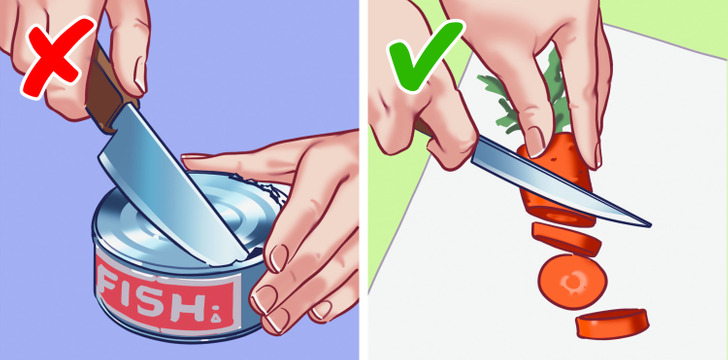
The blade of a knife is unlikely to serve you for a long time if you don’t use it for its intended purpose.
It’s worth remembering that kitchen knives are meant only for cutting products. It’s a bad idea to use them for cutting ice and bones as well as for opening tins. Any of these actions can easily lead to a dull or broken blade.
Also, don’t forget that the blade of the knife is too thin to be used for chopping meat, for example. There are special cleavers with thicker blades for these purposes.
Find the right cutting board
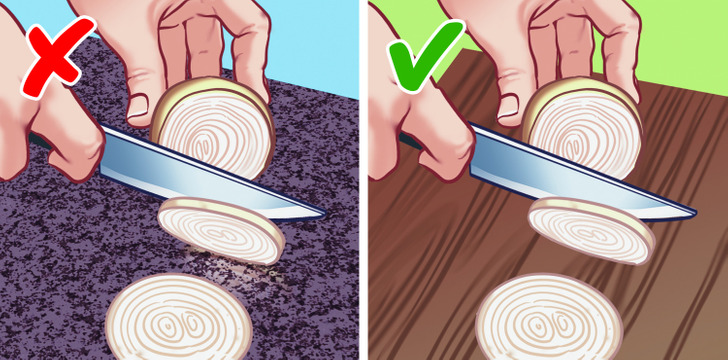
One should chop products on a special cutting board only. Surfaces that are too hard, such as granite, metal, or glass, can seriously damage a knife blade.
The tip of the knife should be in as gentle contact with the board as possible, so it is important to choose a board from the right material.
Cutting boards made of plastic and wood are the best options. If after some time you see the traces of a knife on the board, it means the material is good for use because it is soft enough. However, when there are too many traces or when they are too deep, it means that you press the knife too hard when chopping products and it can negatively affect its service life.
Correct storage
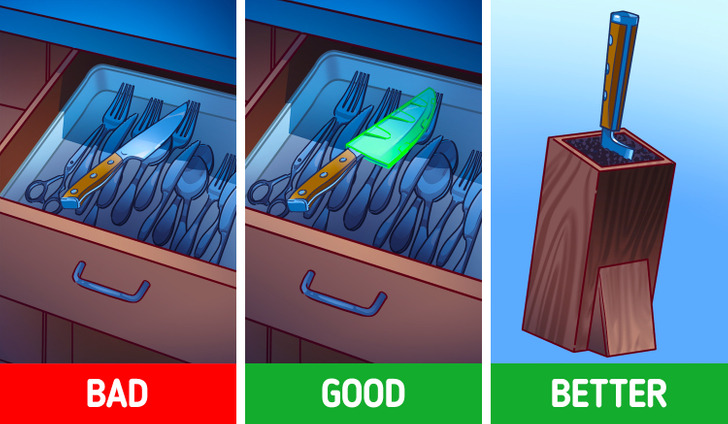
The way you store kitchen knives also affects how long they will serve you.
Don’t put knives into a drawer with other kitchen utensils because this can lead to them wearing out faster due to the contact with numerous spoons and forks. The only thing that can protect the blade of your kitchen knife from contact with other kitchen utensils is special plastic cases.
It’s best to store knives in separate blocks or on special magnets.
Rules of washing
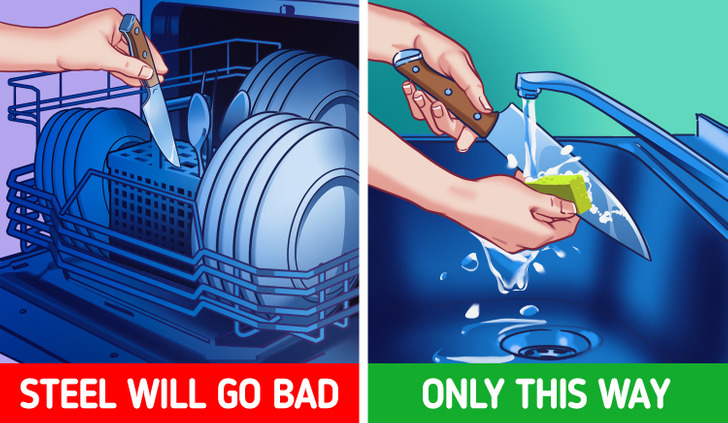
The knife must be washed after each use with warm water, dish detergent, and a soft sponge. Don’t leave the knife in water for a long time. Moreover, it must be thoroughly dried immediately after washing, otherwise, there is a risk that the knife will rust.
Knives should be washed only by hand. Never wash them in a dishwasher. The thing is dishwasher detergents are so powerful that they can easily damage the steel of your knife. In addition, the impact of the machine caused by the intensity of its work may damage the blade of the knife and chip the handle.
Correct sharpening
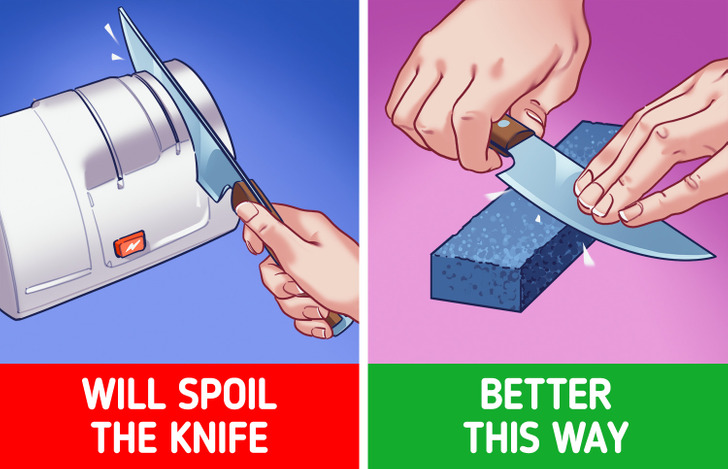
Keeping your knives sharp is also an important task. Sharp knives are actually much safer than blunt ones because the risk of cutting yourself while unsuccessfully trying to chop onions or potatoes is significantly reduced.
Try not to use electric knife-sharpeners as they sometimes remove too much metal and significantly reduce the service life of the knife. It’s better to use honing rods and stone for sharpening knives. Although you’ll need to develop some skills to work with them, and mastering them will require some time, the quality of sharpening knives is much higher when this method is used.